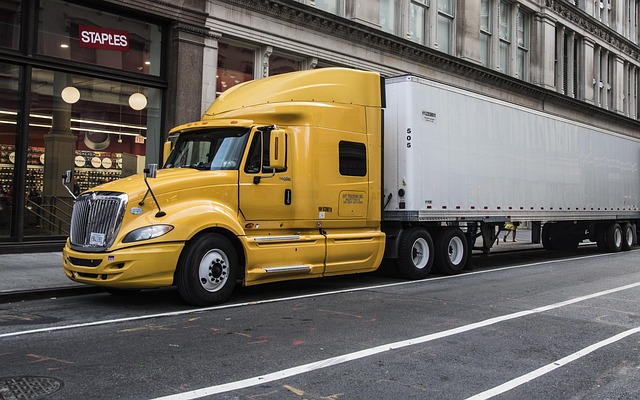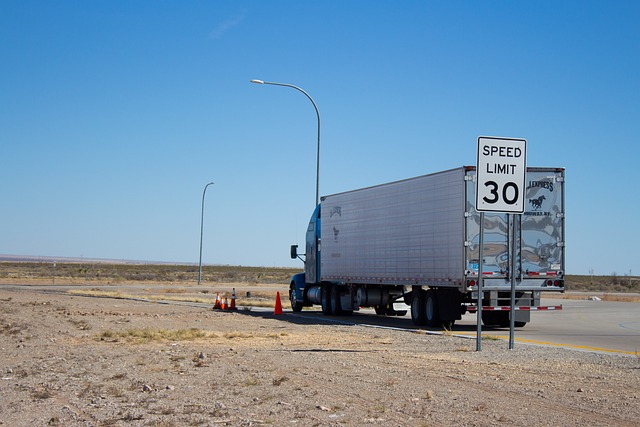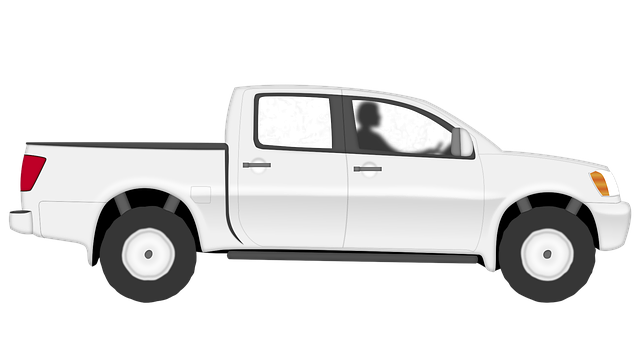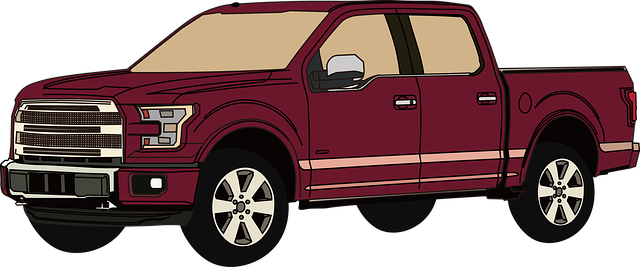Small Business Truck Insurance: Building Credibility and Trust

Small Business Truck Insurance is a vital tool for fostering credibility and setting trucking and lo…….
Trucking Insurance for New Businesses: Navigating the Road Ahead
Introduction
In the rapidly evolving landscape of transportation and logistics, trucking insurance stands as a pivotal safeguard for new businesses entering this competitive arena. This comprehensive article delves into the intricacies of trucking insurance, its core components, and its significance in the broader context of commercial operations. We will explore historical context, global impact, economic considerations, technological advancements, policy and regulation, challenges and criticisms, with case studies to illustrate key points. By understanding these elements, new businesses can navigate the complexities of the trucking industry and secure their financial future.
Understanding Trucking Insurance for New Businesses
Trucking insurance is a specialized form of coverage designed to protect trucking companies and their assets from a range of risks associated with operating in the transportation sector. It encompasses several key components: liability coverage, physical damage protection, cargo insurance, and uninsured/underinsured motorist coverage. These policies are tailored to address the unique exposures faced by truckers, such as traffic accidents, cargo loss or damage, and liability claims resulting from vehicle operation.
Historically, trucking insurance has evolved alongside the trucking industry itself, adapting to new challenges and technological advancements. As the volume of goods transported by road continues to rise, so does the complexity of coverage requirements. New businesses must understand these components to ensure they are adequately protected against potential losses and liabilities.
Global Impact and Trends
The impact of trucking insurance is not confined to any single region but spans the globe. International trade relies heavily on overland transportation, making trucking insurance a critical component in the global supply chain. Key trends shaping the industry include the increasing demand for logistics services, the growth of e-commerce, and advancements in technology that enhance tracking and security.
Developed economies with well-established infrastructure continue to lead in terms of innovation and coverage options. Meanwhile, emerging markets are rapidly expanding their trucking fleets, creating a surge in demand for tailored insurance solutions that can protect against the unique risks associated with these regions, such as political instability or diverse environmental conditions.
Economic Considerations
From an economic standpoint, trucking insurance plays a dual role: it protects businesses from financial ruin while also contributing to the overall stability and growth of the economy. The insurance sector is a significant investor in various markets, with premiums collected supporting a wide range of investment vehicles that fund further economic development.
Market dynamics within the trucking industry are influenced by factors such as fuel prices, regulatory changes, and economic cycles. Insurance premiums are often sensitive to these dynamics, making it imperative for new businesses to stay informed and agile in their coverage choices. A strategic approach to trucking insurance can buffer against market volatility, ensuring long-term viability and profitability.
Technological Advancements
Technology has revolutionized the trucking industry, leading to advancements in vehicle safety, route optimization, and real-time tracking of cargo. These innovations have directly impacted trucking insurance, with insurers offering policies that account for these technological improvements. For instance, GPS tracking can lead to lower premiums due to the reduced risk of theft or misrouting.
Looking ahead, developments such as autonomous vehicles and advanced telematics promise further reductions in accidents and improved efficiency, which could result in more favorable insurance rates. However, these advancements also introduce new liability considerations that insurers must address.
Policy and Regulation
The regulatory framework governing trucking insurance is complex and varies by jurisdiction. National and international policies and regulations dictate the types of coverage required, minimum liability limits, and safety standards that carriers must adhere to. Compliance with these regulations is not only a legal necessity but also a prerequisite for securing adequate insurance coverage.
Legislation such as the Federal Motor Carrier Safety Regulations (FMCSR) in the United States sets forth the operating standards for interstate commercial motor vehicles, which insurers consider when underwriting policies. Staying abreast of these regulations is crucial for new businesses to avoid penalties and ensure their operations are fully covered.
Challenges and Criticisms
Trucking insurance is not without its challenges and criticisms. One major concern is the cost of coverage, which can be prohibitive for smaller operators. Additionally, insurers may face difficulties in accurately assessing risk due to the variability in cargo types, routes, and driving conditions.
To address these issues, new business owners should seek out insurance providers with expertise in the trucking industry. They should also consider strategies such as risk management practices, driver training programs, and the implementation of safety technologies that can lead to lower premiums and more comprehensive coverage.
Case Studies
Several case studies highlight the successful application of trucking insurance among new businesses. For example, a smaller logistics company that invested in advanced tracking technology and comprehensive insurance coverage successfully navigated a major cargo theft incident, minimizing financial losses and maintaining customer trust. Another case involves a startup that leveraged data analytics to optimize routes and reduce the frequency of claims, leading to more favorable rates and expanded service offerings.
Conclusion
Trucking insurance is an essential aspect of operating within the transportation industry, offering protection against a multitude of risks. For new businesses, understanding the nuances of coverage options, staying informed on regulatory changes, and leveraging technological advancements are key to securing the right insurance and ensuring operational success. By doing so, trucking companies can not only protect their assets but also contribute to the stability and growth of the global economy.
As the industry continues to evolve, the importance of tailored insurance solutions will only increase. New businesses must be proactive in their approach to insurance, viewing it as a strategic investment rather than a mere compliance obligation. With the right coverage and a deep understanding of market dynamics, trucking companies can navigate the complexities of the industry and achieve long-term success.

Small Business Truck Insurance is a vital tool for fostering credibility and setting trucking and lo…….

Trucking startups face unique challenges like fluctuating fuel costs, driver shortages, and changing…….

Starting a trucking business requires tailored insurance that grows with operations. New businesses…….

Understanding startup trucking coverage is essential for new ventures in the industry, providing lia…….

Startups in high-risk industries like trucking need specialized insurers who understand their unique…….

New businesses in the trucking sector face complex risks including vehicle accidents, cargo damage,…….

New trucking businesses must prioritize affordable trucking insurance to navigate industry risks eff…….

Starting a business exposes entrepreneurs to legal risks, but liability insurance for startups offer…….

Effective risk management for new businesses involves a dual approach of preventative measures and r…….